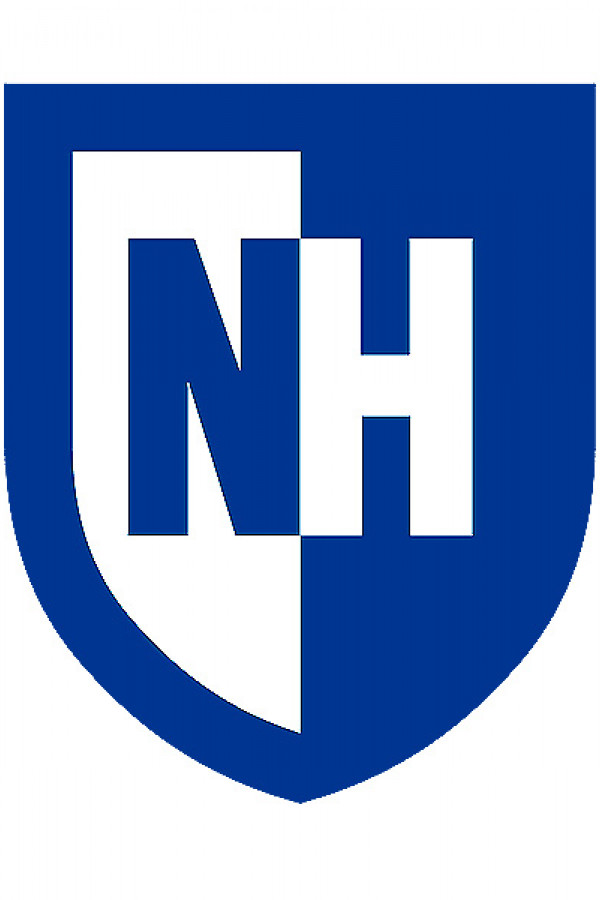The Analytics Degree at UNH offers an innovative curriculum that combines advanced technical training with real-world applications in data analysis. Here you'll be able to master industry-standard tools and big data frameworks while learning to transform complex data into actionable business insights.
Students will gain hands-on experience analyzing data across diverse sectors like finance, healthcare, and marketing. Through comprehensive coursework in statistical analysis, machine learning, and data visualization, this program prepares students for high-demand careers in data analytics or advanced graduate studies.
What is the analytics major?
This degree program gives you a solid foundation in the tools you’ll need for careers in the analytics industry. In addition to courses in mathematics, computer science and analytics, you’ll study business organizations and behavior, and professional technical writing. Our graduates have the skills to start careers immediately after completing their degree, or to pursue further study in a professionally oriented program such as the Master of Science in Analytics at UNH.
Why study analytics at UNH?
UNH was one of the first universities in the country to offer an undergraduate-level degree in analytics and data science. Our programs take a multidisciplinary approach that incorporates experiential education, professional development, projects and work experience. We partner with local businesses to give you the real-world experience that sets you apart, and our analytics majors have access to internships at many high-profile organizations. You’ll learn the cutting-edge technical skills you need to manage, distill, and interpret data for industries from finance to healthcare to marketing and advertising.
Potential careers
- Actuary
- Business analyst
- Consultant
- Data engineer
- Data scientist
- Management analyst
- Market research analyst
- Quantitative analyst
Curriculum & Requirements
The BS in Analytics is intended for students interested in either heading into industry immediately upon graduation, or pursuing graduate work in a professionally oriented program such as the Master of Science in Analytics at UNH. The program places its emphasis on applications of data science in business and industry.
Sample Degree Plan
This sample degree plan serves as a general guide; students collaborate with their academic advisor to develop a personalized degree plan to meet their academic goals and program requirements.
| First Year | ||
|---|---|---|
| Fall | Credits | |
| CS 400 | Introduction to Computing | 2 |
| CS 415 | Introduction to Computer Science I | 4 |
| CS 457 | Introduction to Data Science and Analytics | 4 |
| MATH 425 | Calculus I | 4 |
| ENGL 401 | First-Year Writing | 4 |
| Credits | 18 | |
| Spring | ||
| CS 416 | Introduction to Computer Science II | 4 |
| MATH 426 | Calculus II | 4 |
| ADMN 400 | Introduction to Business | 4 |
| Discovery Course | 4 | |
| Credits | 16 | |
| Second Year | ||
| Fall | ||
| CS 515 | Data Structures and Introduction to Algorithms | 4 |
| IT 520 or CS 520 | Foundations of Information Technology or Computer Organization and System-Level Programming | 4 |
| MATH 645 or MATH 545 | Linear Algebra for Applications or Introduction to Linear Algebra | 4 |
| Discovery Lab | 4 | |
| Credits | 16 | |
| Spring | ||
| MATH 539 or MATH 644 | Introduction to Statistical Analysis or Statistics for Engineers and Scientists | 4 |
| ENGL 502 | Professional and Technical Writing | 4 |
| ECON 402 | Principles of Economics (Micro) | 4 |
| Discovery Course | 4 | |
| Credits | 16 | |
| Third Year | ||
| Fall | ||
| CS 674 | Fundamentals of Statistical Learning I | 4 |
| IT 505 | Integrative Programming | 4 |
| MGT 535 | Organizational Behavior | 4 |
| Discovery Course | 4 | |
| Credits | 16 | |
| Spring | ||
| CS 675 | Fundamentals of Statistical Learning II | 4 |
| 600- or 700-level Elective I | 4 | |
| 600- or 700-level Elective II | 4 | |
| Discovery Course | 4 | |
| Credits | 16 | |
| Fourth Year | ||
| Fall | ||
| CS 791 | Senior Project I | 2 |
| MATH 739 | Applied Regression Analysis | 4 |
| IT 630 | Data Science and Big Data Analytics | 4 |
| Discovery Course | 4 | |
| General Elective | 4 | |
| Credits | 18 | |
| Spring | ||
| CS 792 | Senior Project II | 2 |
| 600- or 700-level Elective III | 4 | |
| General Elective | 4 | |
| Discovery Course | 4 | |
| Credits | 14 | |
| Total Credits | 130 | |
Degree Requirements
All Major, Option and Elective Requirements as indicated.
*Major GPA requirements as indicated.
Major Requirements
Successful completion of the degree program includes earning a minimum of 128 credits, meeting the requirements of the University's Discovery Program, completing 24 required courses in the major as listed below, including the capstone courses.
In all major courses, a minimum grade of C- must be earned. The minimum overall GPA for graduation is 2.0.
Transfer students may transfer up to a maximum of 32 credits to satisfy major requirements (not counting those courses used to satisfy Discovery Program requirements).
| Code | Title | Credits |
|---|---|---|
| Required Courses | ||
| Mathematics | ||
| MATH 425 | Calculus I | 4 |
| MATH 426 | Calculus II | 4 |
| MATH 539 | Introduction to Statistical Analysis | 4 |
| or MATH 644 | Statistics for Engineers and Scientists | |
| MATH 645 | Linear Algebra for Applications | 4 |
| or MATH 545 | Introduction to Linear Algebra | |
| MATH 739 | Applied Regression Analysis | 4 |
| Computer Science | ||
| CS 400 | Introduction to Computing | 2 |
| CS 415 | Introduction to Computer Science I | 4 |
| or CS 410P | Introduction to Scientific Programming/Python | |
| CS 416 | Introduction to Computer Science II | 4 |
| CS 457 | Introduction to Data Science and Analytics | 4 |
| CS 515 | Data Structures and Introduction to Algorithms | 4 |
| IT 505 | Integrative Programming | 4 |
| IT 520 | Foundations of Information Technology | 4 |
| or CS 520 | Computer Organization and System-Level Programming | |
| Business | ||
| ADMN 400 | Introduction to Business | 4 |
| MGT 535 | Organizational Behavior | 4 |
| ECON 402 | Principles of Economics (Micro) | 4 |
| English | ||
| ENGL 502 | Professional and Technical Writing | 4 |
| Analytics | ||
| CS 674 & CS 675 | Fundamentals of Statistical Learning I and Fundamentals of Statistical Learning II | 8 |
| or CS 674 & CS 750 | Fundamentals of Statistical Learning I and Machine Learning | |
| or MATH 738 & CS 750 | Data Mining and Predictive Analytics and Machine Learning | |
| IT 630 | Data Science and Big Data Analytics | 4 |
| or CS 775 | Database Systems | |
| Capstone | ||
| CS 791 & CS 792 | Senior Project I and Senior Project II | 4 |
| or CS 799 | Thesis | |
| Electives | ||
| Select three (3) CS or MATH 600- or 700-level elective courses 1 | 12 | |
| Total Credits | 90 | |
- 1
Students may choose a 600- or 700-level elective in another discipline with approval from advisor.
Program Learning Outcomes
- Analyze a complex computing problem and to apply principles of computing and other relevant disciplines to identify solutions.
- Design, implement, and evaluate a computing-based solution to meet a given set of computing requirements in the context of the program’s discipline.
- Communicate effectively in a variety of professional contexts.
- Recognize professional responsibilities and make informed judgments in computing practice based on legal and ethical principles.
- Function effectively as a member or leader of a team engaged in activities appropriate to the program’s discipline.
- Apply theory, techniques, and tools throughout the data analysis lifecycle and employ the resulting knowledge to satisfy stakeholders’ needs.
Explore Program Details
Those interested in the Analytics & Data Science: Analytics Option major may also be interested in the following advanced degrees. Students in the program also have the opportunity to participate in the UNH accelerated master’s program.

























